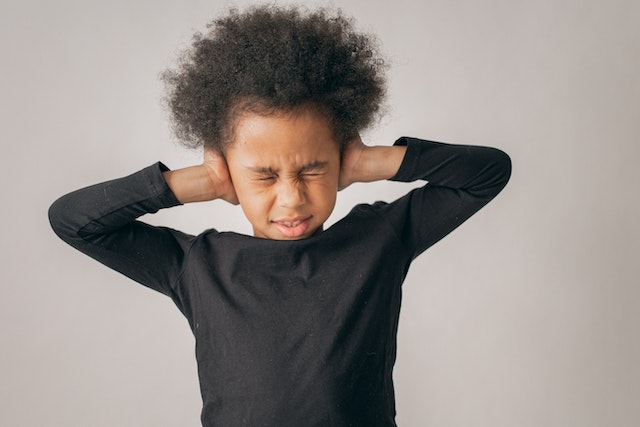
Understanding the consequences of parental alienation on children is crucial to raising awareness about this issue and preventing it from happening. Children who experience parental alienation often suffer from emotional and psychological harm, which can have a significant impact on their future relationships and mental health.
Parental alienation refers to the intentional act of one parent to manipulate or influence a child to reject, limit, or avoid their relationship with the other parent. This can happen through various methods such as speaking poorly of the other parent, limiting contact or communication, or encouraging the child to choose sides.
This article aims to provide insight into the topic, how it can impact the overall development and well-being of children, and provide resources for those seeking information about the effects of parental alienation on children.
Effects of Parental Alienation on Children
The effects of parental alienation on children can be devastating and long-lasting. Children who experience parental alienation often suffer from emotional and psychological harm, including feelings of rejection, low self-esteem, and anxiety.
These effects can have a significant impact on their future relationships, mental health, and well-being. In this section, we will delve into the various ways that parental alienation can impact children, as well as provide resources and coping mechanisms for those who have been affected by it. Here are the outlined effects:
A. Emotional and psychological harm
Children who experience parental alienation are often subjected to emotional and psychological harm, such as feelings of rejection, low self-esteem, and anxiety. This can lead to long-term negative impacts on their mental and emotional well-being.
B. Development of low self-esteem and self-worth
Children who are subjected to parental alienation often struggle with feelings of worthlessness and self-doubt. This can result in a negative self-image that can affect their future relationships and prospects.
C. Difficulty in forming healthy relationships
Children who experience parental alienation often struggle with trust issues, making it difficult for them to form healthy relationships in the future. They may also have difficulty with attachment and forming meaningful connections with others.
D. Trust issues and anxiety
Children who are subjected to parental alienation often develop trust issues and anxiety. This can make it difficult for them to feel secure in their relationships and can lead to a pattern of avoidant behavior.
E. Long-term impact on mental health
The long-term impact of parental alienation on children can be severe and can result in various mental health issues, such as depression, anxiety, and relationship difficulties. Children who experience parental alienation may also struggle with attachment and trust issues throughout their lives.
Coping Mechanisms for Children of Parental Alienation
Experiencing parental alienation can be a traumatic and overwhelming experience for children. However, it is important to note that there are ways to cope and overcome its effects once the signs have been observed.
In this section, we will explore various coping mechanisms that can help children who have experienced parental alienation. By utilizing these resources, children can begin to process their experiences and work towards a brighter future.
A. Therapy and counseling
- Therapy and counseling can be effective in helping children cope with the effects of parental alienation. A therapist can provide support, and guidance, and help children process their experiences and emotions.
B. Seeking support from a trusted friend or family member
- Children who experience parental alienation can benefit from seeking support from a trusted friend or family member. This can provide a safe and supportive environment in which they can process their experiences and emotions, especially if they are in the custody of single parents.
C. Journaling and self-expression
- Journaling and self-expression can be helpful for children to process their experiences and emotions related to parental alienation. This can also help them identify patterns and work through difficult emotions.
D. Building a positive self-image
- Building a positive self-image can be important for children who have experienced parental alienation. This can help them develop a healthy sense of self-worth and resilience.
E. Seeking legal intervention when necessary
- In some cases, seeking legal intervention may be necessary to protect children from the harmful effects of parental alienation. This can include seeking a custody or parenting plan modification, or seeking a restraining order if necessary.
What to say to an alienated child
If you are speaking to a child who is experiencing parental alienation, it is important to approach the situation with empathy and understanding. Here are a few suggestions on what you can say to the child:
- “I am here for you and I care about you.”
Let the child know that they are not alone and that you are there to support them. - “It’s not your fault.”
Reassure the child that the alienation is not their fault and that they did not cause it. - “It’s okay to feel angry, sad, or confused.”
Validate their feelings and let them know that it is normal to feel a range of emotions in this situation. - “It’s important to have a relationship with both of your parents.”
Encourage the child to maintain a relationship with both parents if possible and let them know that it is possible to love both parents despite conflicts or disagreements. - “It’s important to talk about your feelings.”
Encourage the child to express their thoughts and feelings and to reach out for help if they need it.
How to combat parental alienation teenager
Combating parental alienation as a teenager can be a challenging experience, but there are steps that can be taken to help address the situation. Here are a few suggestions:
- Seek therapy or counseling. Talking to a mental health professional can provide a safe and supportive environment to process your emotions and experiences related to parental alienation.
- Maintain a relationship with both parents. If possible, try to maintain a relationship with both parents. This can help to counteract the effects of alienation and provide you with a stronger support system.
- Keep a record of alienation. Document any instances of alienation, such as emails, texts, or conversations. This can help you to see patterns and be prepared if you need to seek legal intervention in the future.
- Be open with trusted adults. Reach out to trusted family members, teachers, or other adults for support. They may be able to provide you with resources and guidance to help you cope.
- Consider seeking legal intervention. If the situation is severe, consider seeking the assistance of a lawyer or seeking a restraining order. This can help to protect you and provide a sense of security.
- Build a positive self-image. Despite the challenges of parental alienation, it is important to focus on building a positive self-image and maintaining a healthy sense of self-worth. Engage in activities that you enjoy and surround yourself with positive and supportive people.
Conclusion
If you are dealing with parental alienation, a parental alienation helpline can be a valuable resource to provide support and guidance. However, it is important to understand that winning back an alienated child may not always be possible. In some cases, the child may have become so deeply entrenched in the alienation that it is difficult to undo the damage.
In such cases, it may be necessary to reassess the situation and consider whether it is appropriate to continue efforts to win back the child or if it is time to focus on other priorities and let go. It is important to seek the guidance of a therapist or mental health professional to determine the best course of action in your individual situation.





